Seeking addiction treatment is a critical step toward recovery, but for many individuals, the cost of rehab can feel like a major barrier. The fear of high expenses prevents some from getting the help they need, leading them to delay or avoid treatment altogether. However, the reality is that insurance can significantly reduce the financial burden of rehab, making high-quality addiction treatment more accessible than many people realize.
For individuals in North Florida—including residents of Lake City, Gainesville, and surrounding areas—understanding how insurance works for addiction treatment is essential. Private insurance, Medicaid, and state-funded programs all offer coverage options that can help reduce out-of-pocket costs. The key is knowing how to navigate insurance benefits, choose the right treatment center, and take full advantage of available financial resources.
How Insurance Covers Addiction Treatment
Addiction treatment is recognized as an essential healthcare service under the Affordable Care Act (ACA), meaning that most insurance plans are required to cover substance use disorder treatment. While the extent of coverage varies depending on the provider and specific policy, most plans include benefits for a range of treatment services, including:
- Medical Detox: The first step in addiction recovery for many individuals, detox helps patients safely manage withdrawal symptoms under medical supervision. Insurance typically covers detox as part of an inpatient or outpatient program.
- Inpatient Rehab: Residential treatment programs provide 24/7 support, structured therapy, and medical care. Many insurance plans cover a portion of inpatient treatment costs, though the length of covered stays may vary.
- Outpatient Rehab: For individuals who do not require full-time residential care, outpatient programs offer therapy and counseling on a flexible schedule. Insurance often covers outpatient services, making it a cost-effective alternative to inpatient care.
- Medication-Assisted Treatment (MAT): MAT is a highly effective approach for individuals recovering from opioid or alcohol addiction. Insurance frequently covers FDA-approved medications such as methadone, buprenorphine, and naltrexone, along with the required medical monitoring and counseling.
- Dual Diagnosis Treatment: Many people struggling with addiction also have co-occurring mental health disorders such as depression, anxiety, or PTSD. Insurance often provides coverage for integrated treatment programs that address both conditions simultaneously.
While most insurance plans provide coverage for these services, the specifics of each policy can vary widely. Some plans cover the full cost of treatment, while others require co-pays, deductibles, or pre-authorization. Verifying benefits before beginning treatment is crucial to avoid unexpected costs.
Private Insurance and Addiction Treatment in North Florida
Private health insurance is one of the most common ways people in North Florida pay for addiction treatment. Major providers such as Blue Cross Blue Shield of Florida (Florida Blue), Cigna, Aetna, and UnitedHealthcare offer policies that include substance use disorder treatment. However, coverage details can vary depending on the type of plan:
- HMO Plans: Health Maintenance Organization (HMO) plans typically require patients to choose an in-network rehab facility and get a referral from their primary care physician before beginning treatment.
- PPO Plans: Preferred Provider Organization (PPO) plans offer more flexibility, allowing individuals to receive treatment from both in-network and out-of-network providers, though costs may be higher for out-of-network care.
- EPO Plans: Exclusive Provider Organization (EPO) plans function similarly to HMO plans but do not require referrals. They cover only in-network providers.
For residents of Lake City and Gainesville, choosing an in-network rehab center is one of the best ways to keep costs down. Many treatment facilities work with multiple insurance providers and have staff dedicated to helping patients navigate insurance claims and coverage verification.
Medicaid and State-Funded Programs for Addiction Treatment
For individuals without private insurance, Medicaid provides another option for accessing addiction treatment in North Florida. Medicaid is a government-funded health insurance program that offers coverage for low-income individuals and families. Florida’s Medicaid program includes benefits for substance use disorder treatment, such as:
- Detox and withdrawal management
- Inpatient and outpatient rehabilitation
- Medication-assisted treatment (MAT)
- Counseling and behavioral therapy
One challenge with Medicaid is that not all rehab centers accept it. However, there are state-funded and Medicaid-approved treatment programs available in Lake City, Gainesville, and other parts of North Florida. The Florida Department of Children and Families (DCF) oversees substance abuse treatment services in the state and provides resources to help residents find Medicaid-approved rehab centers.
Additionally, some rehab centers offer sliding-scale fees based on income or provide grant-funded treatment options for those who qualify. These programs can help bridge the gap for individuals who need addiction treatment but lack private insurance.
Steps to Verify Insurance Coverage for Rehab
Before entering a rehab program, it’s important to verify insurance coverage to understand what costs will be covered and what, if any, out-of-pocket expenses may apply. Here’s how to navigate the process:
- Contact the Insurance Provider: Call the customer service number on the back of the insurance card and ask about substance use disorder coverage. Key questions to ask include:
- What types of addiction treatment are covered?
- Are inpatient and outpatient services both included?
- Is pre-authorization required before treatment begins?
- What are the co-pays, deductibles, and out-of-pocket costs?
- Which rehab centers are in-network?
- Reach Out to a Rehab Center: Many treatment facilities have insurance specialists who can verify benefits and explain coverage details. They can also assist with the admissions process and help patients understand what financial options are available.
- Review the Explanation of Benefits (EOB): Once an insurance provider processes a claim, they send an Explanation of Benefits (EOB) document outlining what services were covered and any remaining balance. Reviewing this document ensures there are no billing surprises.
- Explore Financial Assistance Options: If insurance does not fully cover treatment costs, ask the rehab center about payment plans, sliding-scale fees, or scholarships that may be available.
Finding Affordable Addiction Treatment in Lake City and Gainesville
For individuals in Lake City and Gainesville, finding affordable addiction treatment is possible with the right approach. There are several rehab centers in these cities that accept private insurance, Medicaid, and other financial assistance programs. Some of the key factors to consider when choosing a treatment center include:
- Accreditation and Licensing: Look for facilities accredited by organizations such as the Joint Commission or the Commission on Accreditation of Rehabilitation Facilities (CARF). Licensed treatment centers adhere to high standards of care.
- Specialized Treatment Options: Some rehab centers focus on specific populations, such as young adults, professionals, or individuals with co-occurring mental health disorders. Finding a program that aligns with personal needs can improve treatment outcomes.
- Location and Environment: While some individuals prefer to stay close to home for treatment, others benefit from a change of environment. Lake City and Gainesville offer a mix of urban and rural treatment settings.
- Aftercare and Support Services: Recovery does not end after rehab. Look for facilities that provide long-term support, such as outpatient counseling, 12-step programs, and relapse prevention planning.
Taking the First Step Toward Recovery
The financial aspect of addiction treatment should never be a barrier to getting help. With insurance coverage, Medicaid programs, and financial assistance options, rehab is more affordable than many people realize. The most important step is to reach out—to a treatment center, an insurance provider, or a support group—to begin the journey toward recovery.
Addiction is a disease, but it is treatable. North Florida residents, whether in Lake City, Gainesville, or surrounding areas, have access to high-quality care that can help them break free from substance abuse. By understanding insurance benefits and exploring available resources, individuals and families can take control of their recovery and find a path toward a healthier, addiction-free future.


